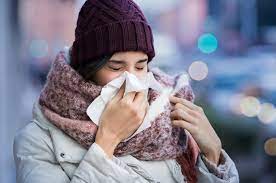
Winter Illnesses
Kia ora koutou,
With Term 2 underway, we’re looking ahead to what might come next – not just from COVID-19 but the upcoming winter season and illnesses that may come with it.
With New Zealanders mostly sheltered from exposure to flu in the last two years, health experts are concerned about our lower immunity to flu. This winter there is the very real possibility of getting the flu and COVID-19 within a short space of time. This can lead to very serious illness and high mortality rates.
If you are normally someone who doesn’t bother with the flu vaccine, we strongly encourage you to get your flu vaccination this year and get your whānau up to date with any other vaccinations (for example, measles, whooping cough).
Flu (influenza) vaccines – Ministry of Health
In 2022, flu vaccinations are free for:
- pregnant people
- people aged 65 years and over
- Māori and Pacific people aged 55 years and over
- people who have a long-term medical condition like diabetes, asthma, or a heart condition (ages 6 months+)
- children under the age of four who have been in hospital with respiratory illness such as asthma.
If you’re not eligible for a free flu jab, and not covered by an employer-funded programme, it costs between $25 and $45 depending on the vaccine and provider.
There is further information about the symptoms and danger signs for flu on the Ministry of Health website.
Flu symptoms – Ministry of Health
As always, we want to keep our ākonga and kaiako as safe as possible from the harms from illness and to have as many ākonga learning on site as we can. All those good actions we already have in place to reduce the risk of harm from COVID-19 will also help to prevent seasonal illnesses including:
- staying away if unwell and seeking advice about getting tested
- regularly washing hands
- using well-ventilated spaces
- wearing masks when indoors
- cleaning and disinfecting high-touch surfaces regularly
- covering coughs and sneezes
- having a highly vaccinated community (and not just for COVID-19).
You can do the same at home and hopefully together, we will keep our community healthy this winter.
As always, if you have any questions about our health and safety plans please get in touch.
Ngā mihi
Peter Brooks
Principal
Information about Influenza
Symptoms
The symptoms of influenza can be the same or similar to the symptoms of COVID-19. Influenza symptoms are:
- fever (a temperature of 38°C or higher)
- cough
- sore throat
- runny or stuffy nose
- body aches
- headache
- chills
- stomach upset, vomiting or diarrhoea.
If you do catch flu, while you’re unwell, it’s important that you stay away from work or school. Look after yourself and your family – rest and fluids are especially important.
It’s also important to seek medical advice early if you are concerned, and especially if there are any danger signs, even if you have been seen before.
Danger signs
Seek urgent medical advice if you have:
- a high fever that doesn’t come down, especially if you are pregnant
- chills or severe shaking
- difficulty breathing or chest pain
- purple or bluish discolouration of your lips, skin, fingers or toes
- seizures or convulsions
- signs of other serious conditions, such as meningococcal disease (which may include severe headache, sleepiness, vomiting, stiff neck, dislike of bright lights, and sometimes a rash).
Look out for signs of dehydration such as dizziness when standing, and not passing urine regularly.
If a person you are caring for is less responsive than normal, unusually quiet, or confused, you should call a doctor urgently.
Danger signs for babies and young children
Call a doctor if your baby or child’s breathing is fast or noisy or if they are wheezing or grunting. Check if the area below the ribs sucks inward (instead of expanding as normal) as they breathe in.
You should get help if your baby or child is:
- very pale
- drowsy or difficult to wake
- severely irritable, not wanting to be held
- limp or unable to move
- if a baby has dry nappies or no tears when they are crying, it means they are dehydrated. It is important to contact a doctor
- if they have signs of other serious conditions, such as meningococcal disease (which may include severe headache, stiff neck, dislike of bright lights, and sometimes a rash, but in very young children are often non-specific such as sleepiness and vomiting).
If you have any worries about yourself or someone you are caring for, call Healthline (0800 611 116) for advice or see a doctor, even if you have called or been seen before.
Further information about influenza:
Article added: Wednesday 11 May 2022

